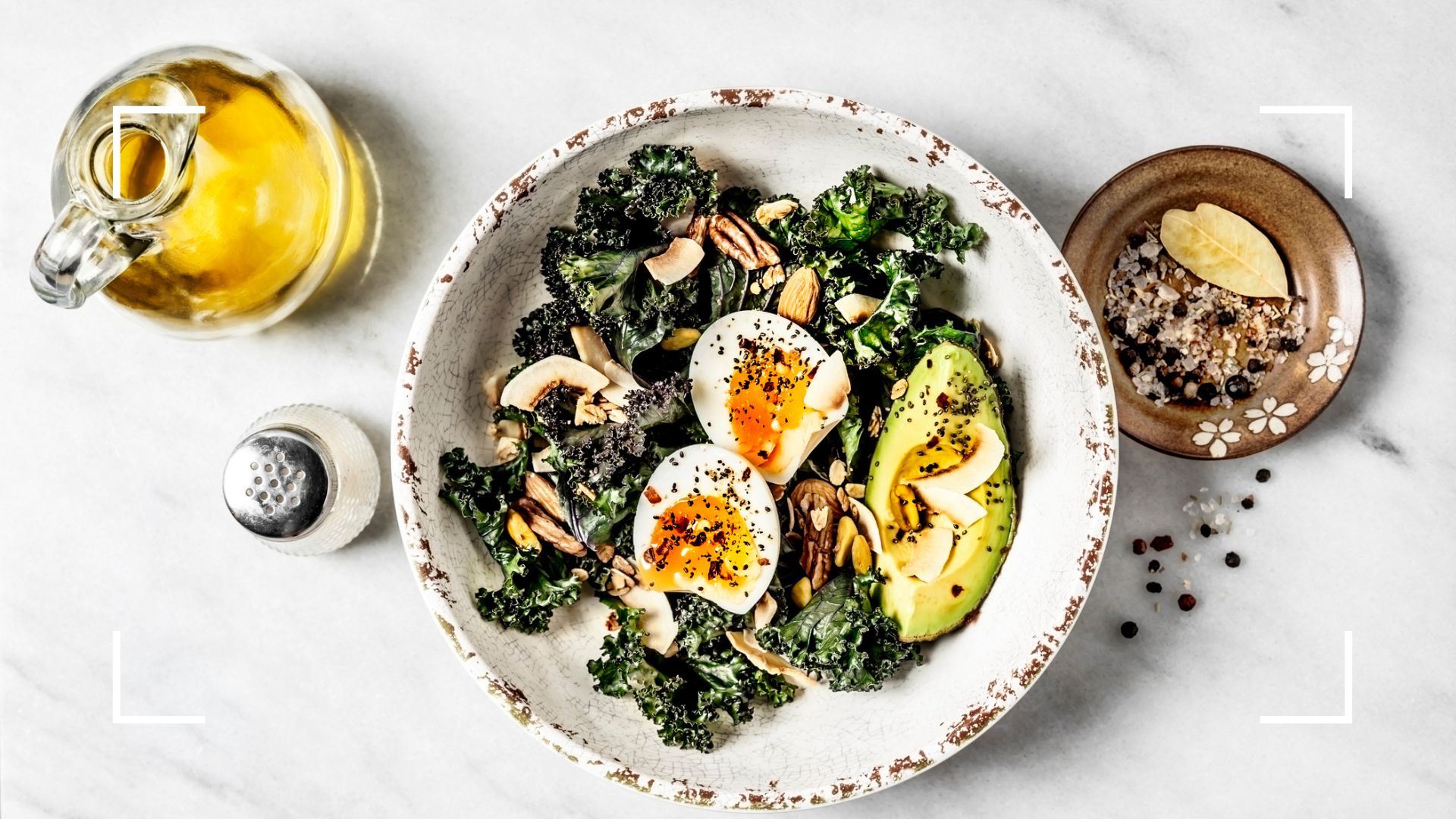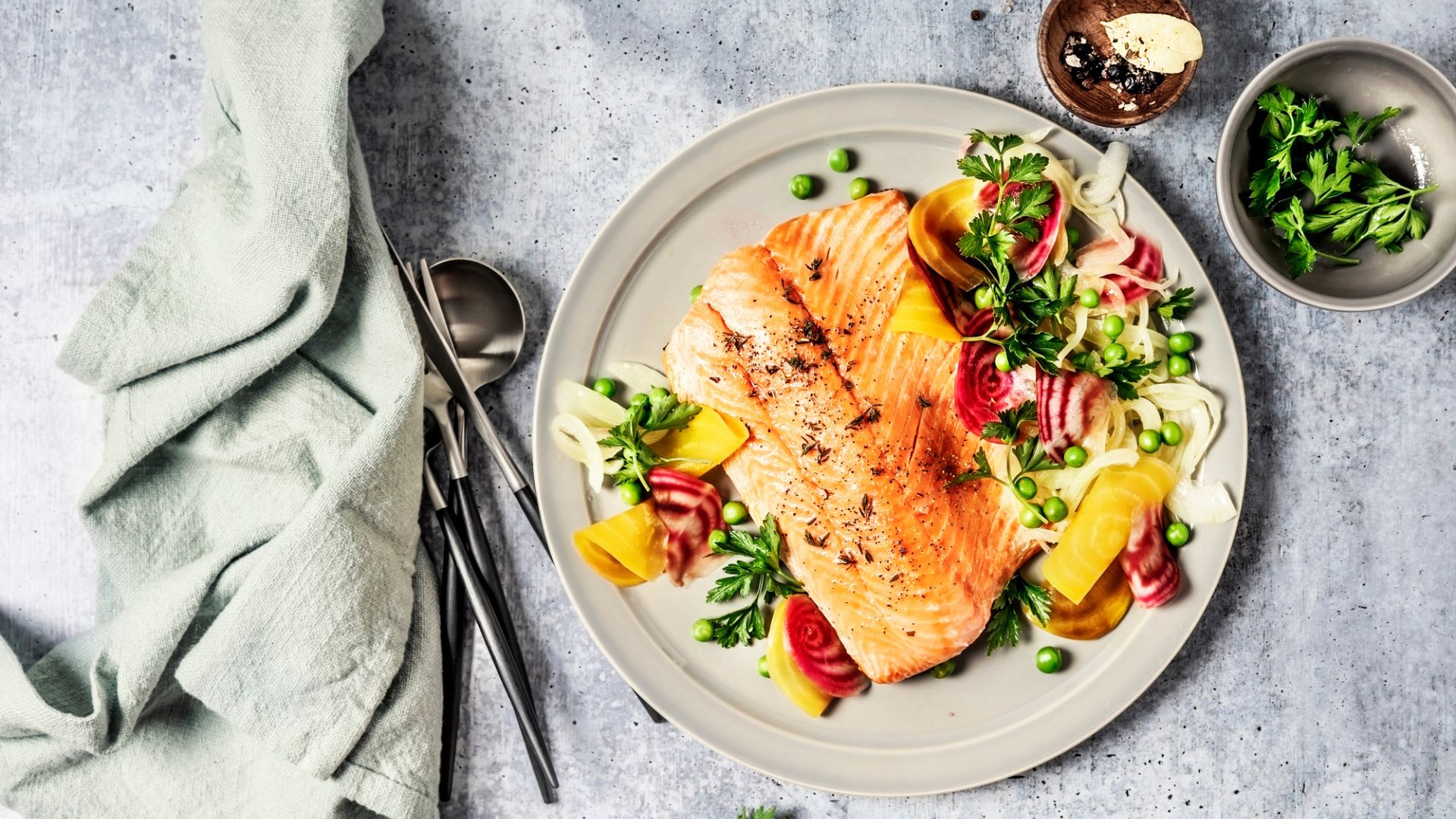Are you eating too much omega-6? Here's how to ensure fatty acids don't sabotage your health goals
The question of are you eating too much omega-6 might not have been on the tip of your tongue - but it's an important one to ask...


It is likely that the question of 'are you eating too much omega-6' is not something that had crossed your mind before. After all, when it comes to healthy fatty acids, omega-3 has received all the attention - from its brain and immunity-boosting powers. But understanding the role of its sister nutrient omega-6, which supports cell function, is key to a nourishing diet.
We've called on the experts to explain what omega-3 and omega-6 actually are, the differences between the two fatty acids and which foods they are each found in. More importantly, they will reveal how consuming too much omega-6, but not enough omega-3, can give rise to a host of health issues - including an increased risk of high cholesterol and heart problems.
So, if you want to harness the benefits of omega-3 as well as omega-6 then you need to ensure you're getting the correct balance of the fatty acids. Our experts will share which foods to add more of to your plate, as well as the items you should cut down on, and why following the Mediterranean diet could be the answer.
How does omega-3 differ from omega-6, and why do I need them both?
Omega-3 and omega-6 fatty acids are a key part of a nutritious diet. "They are both polyunsaturated fatty acids, which are essential to the body," says Melissa Snover, registered nutritionist and founder of Nourished. "However, the important difference is the role they play.
"Omega-3 fatty acids are associated with decreased inflammation and help to maintain the overall health of our immune systems, specifically targeting eye health, as well as brain, nerve and heart function. Omega-6 fatty acids are essential for supporting cell function in our bodies and play an important role in regulating our genes." The latter can also help to decrease 'bad' LDL cholesterol, and increase 'good' HDL cholesterol.
They are both present in a wide range of everyday foods. "Omega-3 is found in oily fish, seeds, nuts, eggs and avocado," explains Dr Claire Shortt, nutritionist and lead scientist at FoodMarble. "Meanwhile, foods such as safflower oil, sunflower oil, corn oil, soybean oil, sunflower seeds, walnuts, pumpkin seeds, pork, beef and chicken are rich in omega-6."

Why is too much omega-6 bad?
While getting enough omega-6 is a positive for your diet, you need to ensure you don't over-consume it. "Too much omega-6 can prevent the metabolism of omega-3 and induce inflammation," explains Dr Shortt. "This rise in inflammation can, in turn, cause an onslaught of health issues including an overall increase in cholesterol, as well as raised blood pressure and heart problems."
Sign up to our free daily email for the latest royal and entertainment news, interesting opinion, expert advice on styling and beauty trends, and no-nonsense guides to the health and wellness questions you want answered.
Additionally, if healthy, sustainable weight loss is your goal then consuming too much omega-6 might stall your efforts. Research has linked our increased intake of omega-6 and decreased intake of omega-3 to a rise in obesity, suggesting that the imbalance of these two fatty acids - and their effects on body fat - might be to blame. What's more, Snover adds: "Too much omega-6 can also cause our bodies to retain excess water." However, while diet is important in this regard, learning how to get fit through plenty of movement is key too.

What is the best way to consume omega-6?
Before you take the possible pitfalls with omega-6 fatty acids as a cue to cut down on certain foods, experts say there is a better approach. "Instead, try adding in some extra omega-3," advises Dr Shortt. "As omega-6 is more prevalent in many commonly eaten foods, we tend to unconsciously consume more of these fatty acids. To strike an ideal balance of eating foods with 'healthy' fats, it is important to try and prioritize incorporating more omega-3 into your diet by eating foods like leafy greens, oily fish and walnuts.
"The Mediterranean diet has a healthy balance between omega-3 and omega-6 fatty acids. Indeed, studies show that people who follow this style of eating are less likely to develop heart disease." Snover adds: "A simple way to optimize the right balance includes avoiding vegetable oils, which are high in omega-6." She suggests it may also be helpful to supplement with omega-3 if you are worried about nutrient deficiency and think you may struggle to get enough of it in your meals.
However, improving your consumption of fatty acids is only a small component of a nutritious diet. "Don’t underestimate the importance of balance when it comes to healthy eating," notes Snover. "It's important to nourish your body and mind with all the essential nutrients it requires in order to feel your best." Be that harnessing the benefits of magnesium or taking probiotics for gut health.

Lauren is a freelance writer and editor with a decade of print and digital journalism experience. While she specialises in covering health and wellness topics - ranging from nutrition and fitness, to women’s health conditions and mental wellbeing - she has written across a diverse range of lifestyle topics, including fashion, beauty, homes, royals and travel.
In addition to writing for Woman & Home and sister title Homes & Gardens, Lauren's work has also been published by Women’s Health, The Times, Daily Telegraph, Elle, Cosmopolitan, The Guardian, Marie Claire, Body + Soul, Stylist, Glamour, Grazia, Red, Dazed Digital, Yahoo Life, The Sun’s Fabulous, Get The Gloss and Hello! among others.